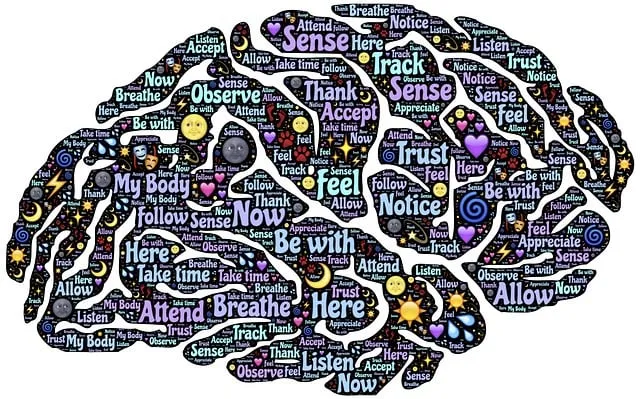Kaiser Permanente Mental Health Aurora prioritizes mood regulation as a cornerstone of overall well-being, offering specialized services like Trauma Support and Self-Care Practices. By recognizing emotional triggers and implementing cognitive techniques, such as CBT and journaling, they empower individuals to manage negative thoughts and emotions effectively. Lifestyle adjustments, including exercise, sleep, and nutrition, are also emphasized for mood stabilization. Through tailored therapy, group support, and workshops, Kaiser Permanente Aurora assists individuals in navigating mental health challenges and building resilience against stressors.
Mood regulation is a vital skill for maintaining emotional well-being. This comprehensive guide explores effective strategies, guided by the expertise of Kaiser Permanente Mental Health Aurora. We delve into understanding mood dynamics, identifying triggers, and employing cognitive techniques to reframe thoughts. Additionally, we highlight lifestyle adjustments, emphasizing self-care practices for stable moods. Learn when and how to access professional support, ensuring you’re equipped to navigate life’s challenges with resilience and enhanced emotional stability, backed by Kaiser Permanente’s resources.
- Understanding Mood Regulation: The Role of Kaiser Permanente Mental Health Aurora
- Identifying Triggers: Recognizing Patterns for Effective Management
- Cognitive Techniques: Shaping Thoughts for Improved Emotional Well-being
- Lifestyle Adjustments: Incorporating Self-Care Practices for Mood Stability
- Professional Support: When to Reach Out and Available Resources
Understanding Mood Regulation: The Role of Kaiser Permanente Mental Health Aurora

Understanding Mood Regulation is a pivotal step towards leading a healthier and happier life, and Kaiser Permanente Mental Health Aurora plays a significant role in guiding individuals through this journey. Mood regulation refers to the ability to manage and stabilize one’s emotional state, ensuring that feelings are appropriate for given situations. It involves recognizing when emotions become overwhelming and implementing strategies to restore balance.
Kaiser Permanente offers specialized services like Trauma Support, designed to assist individuals in processing past traumas and developing healthy coping mechanisms. Their experts also emphasize Self-Care Practices as a cornerstone of emotional regulation, encouraging activities that promote relaxation, mindfulness, and overall well-being. Through these comprehensive approaches, Kaiser Permanente Mental Health Aurora equips individuals with the tools needed to navigate life’s challenges with resilience and grace.
Identifying Triggers: Recognizing Patterns for Effective Management

Recognizing patterns is a powerful tool for managing your mood effectively, much like Kaiser Permanente mental health Aurora professionals guide their patients. Start by identifying triggers that set off negative emotions or relapses into conditions like depression. Keep a journal to track your feelings, behaviors, and surroundings during these moments. You might notice certain situations, people, or even times of day that consistently lead to fluctuations in your mood.
Once you’ve identified these patterns, you can begin to develop strategies for navigating them. For example, if work stress is a trigger, consider implementing Self-Care Practices like mindfulness exercises or setting healthy boundaries. Building Inner Strength Development through therapy or support groups can also help you gain insights and tools to manage triggers more effectively, ultimately supporting long-term Depression Prevention.
Cognitive Techniques: Shaping Thoughts for Improved Emotional Well-being

Cognitive Techniques offer powerful tools for shaping thoughts and enhancing emotional well-being, as recognized by Kaiser Permanente mental health professionals in Aurora. By identifying and challenging negative thought patterns, individuals can effectively manage their mood and improve overall mental wellness. For instance, Cognitive Behavioral Therapy (CBT) techniques encourage people to recognize distorted thinking and replace it with more realistic, positive thoughts. This process helps to reduce symptoms of anxiety and depression, promoting a sense of calm and clarity.
One effective strategy within cognitive techniques is journaling, which provides structured guidance for self-reflection and emotional processing. Writing down thoughts and feelings can help individuals gain insights into their triggers and patterns, fostering a deeper understanding of their emotional responses. This practice, encouraged by healthcare provider cultural competency training, allows for personalized exploration of mental wellness, ultimately contributing to improved coping mechanisms and enhanced quality of life.
Lifestyle Adjustments: Incorporating Self-Care Practices for Mood Stability

At Kaiser Permanente mental health Aurora, we emphasize the power of lifestyle adjustments in stabilizing moods. Incorporating self-care practices into daily routines is a game-changer for many individuals seeking emotional well-being. Simple yet effective strategies such as regular exercise, adequate sleep, and balanced nutrition can significantly impact mood regulation. For instance, engaging in physical activities releases endorphins, often referred to as ‘feel-good’ hormones, which promote relaxation and reduce stress.
Moreover, self-care extends beyond physical health; it includes practices that foster self-esteem improvement and empathy building strategies. Regular mindfulness exercises and journaling can enhance self-awareness, helping individuals understand their emotions better. These practices create a sense of calm and enable people to respond to challenging situations with more clarity and resilience. By prioritizing self-care, individuals can navigate life’s challenges more effectively, leading to improved overall mental health.
Professional Support: When to Reach Out and Available Resources

If you’re feeling overwhelmed or struggling to manage your moods, it’s important to know when and where to seek professional support. Organizations like Kaiser Permanente mental health Aurora offer a range of services tailored to help individuals navigate mood regulation challenges. Reaching out for help is a sign of strength, not weakness, and can provide invaluable assistance in understanding and managing your mental health.
The team at Kaiser Permanente is comprised of experts in the field who specialize in various therapeutic approaches. From individual therapy sessions to group support groups, they offer adaptable solutions designed to enhance well-being. Additionally, they often host Stress Management Workshops and organize initiatives focused on communication strategies, empowering individuals to build confidence and cope with life’s stressors effectively.
Mood regulation is a multifaceted process that, with the right strategies, can significantly enhance emotional well-being. As Kaiser Permanente Mental Health Aurora underscores, understanding individual triggers and adopting evidence-based techniques are key components of this journey. By recognizing patterns, employing cognitive strategies, making lifestyle adjustments, and knowing when to seek professional support, individuals can navigate their moods more effectively. These practices, guided by experts like those found within Kaiser Permanente’s resources, foster stability and resilience, ultimately promoting a healthier and more balanced life.






